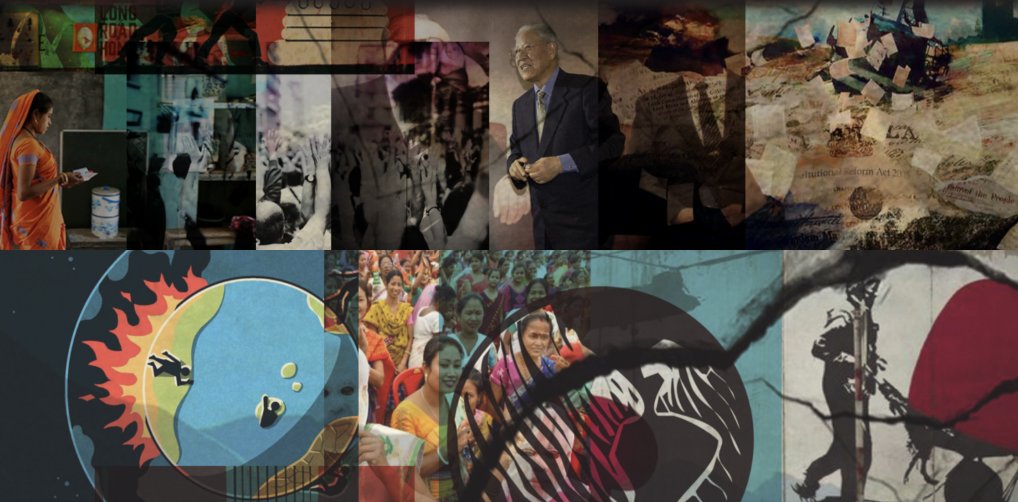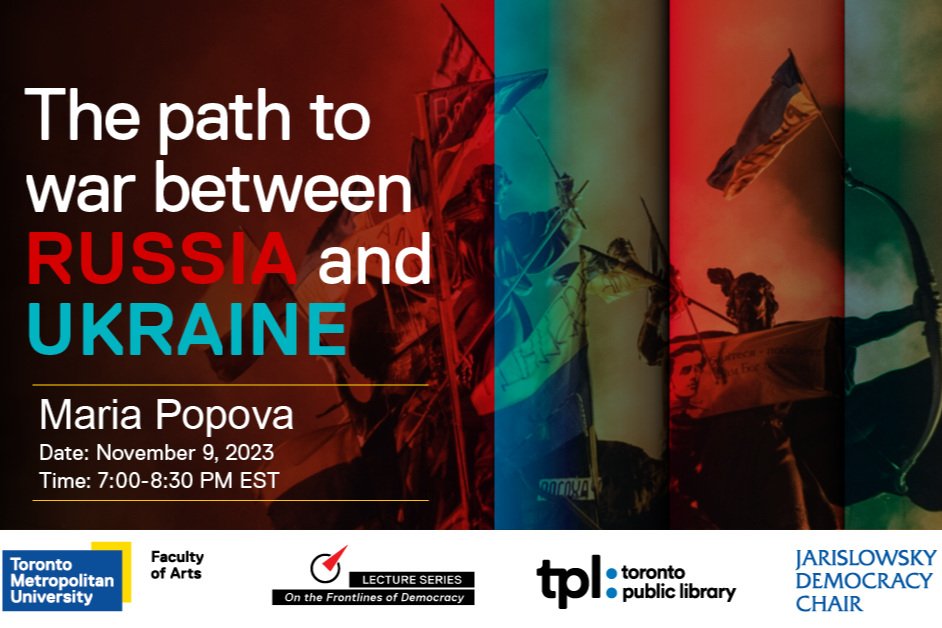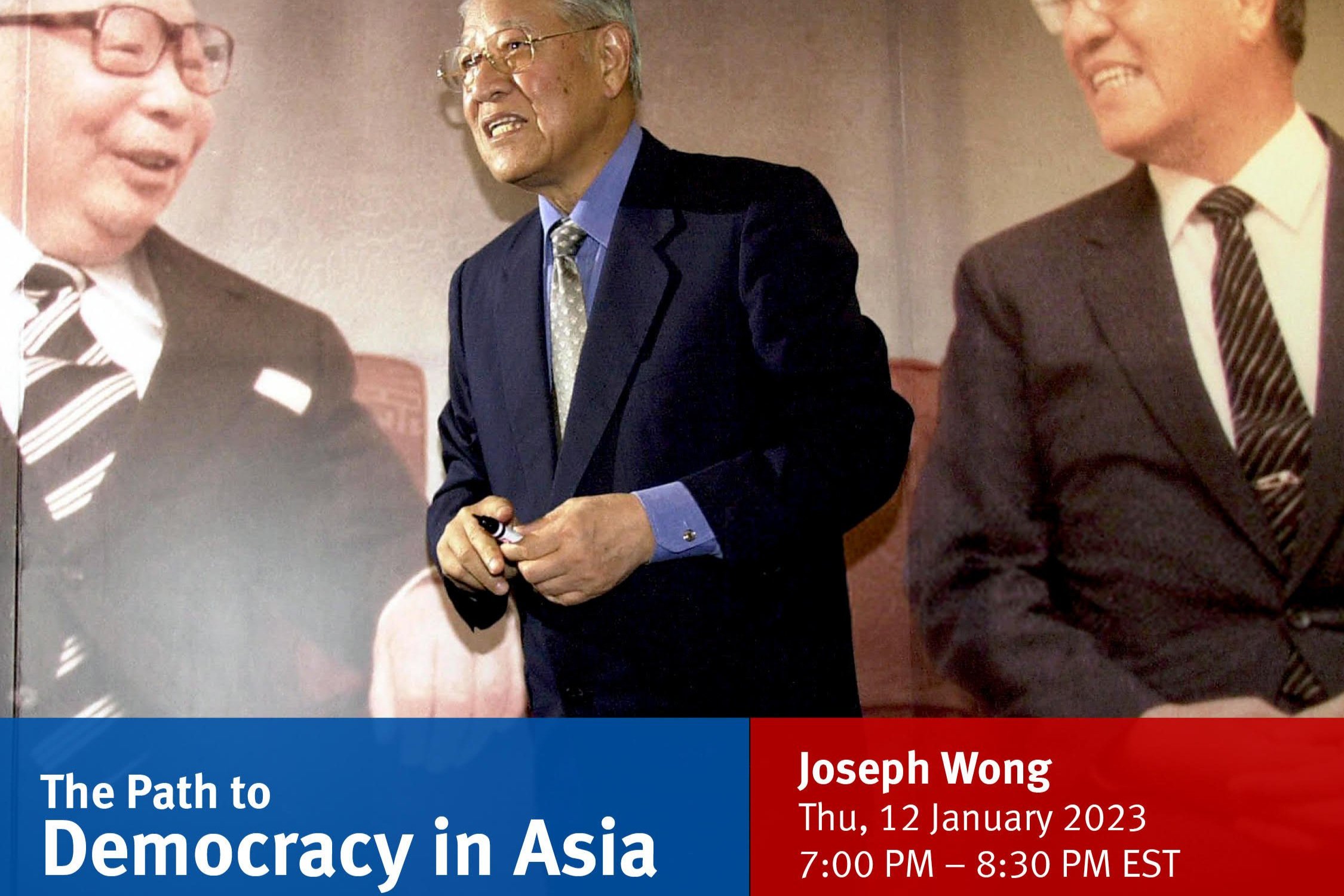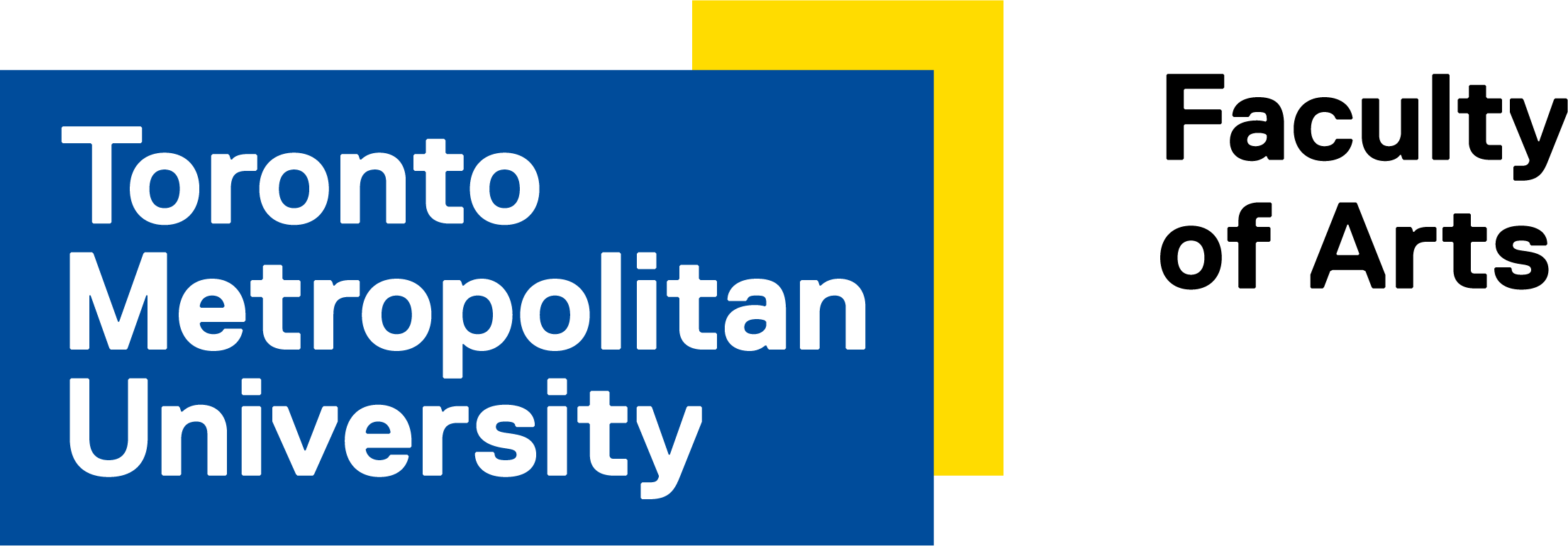
On The Frontlines of Democracy
Lecture Series
About
On the Frontlines of Democracy is a public lecture series to analyze the prospects of democracy in the twenty-first century.
Around the world, democracy faces serious challenges, old and new. Can we protect individual rights and the rule of law in an era of popular mistrust, severe partisanship and resurgent nationalism? How can our democracies reduce inequalities of power, wealth and status, defend deep diversity and confront climate change in the new digital age? Can we develop innovative strategies to revitalize civic engagement, empower public institutions and resist autocratic threats? How can we support the expansion of democracy, in an evolving post-western order, without committing the mistakes of the past?
Learn More
UPCOMING: The World under Capitalism
As a leading economist best known for his work on income distribution and inequality, Branko Milanovic holds a profound understanding of how economic theory and history are intertwined.
We live in a world defined by capitalism. Historically, it has delivered general prosperity through a variety of systems, from liberal market economies to progressive social democracies. However, capitalism always comes with moral costs. It often celebrates material success at the expense of growing economic inequalities and generates political instability.
What does it mean to be rich and poor in today's world? Why have liberal market democracies become controlled by the very rich? What do western societies owe to migrants arriving at their borders?
Capitalism is an inherently risky system. Ultimately our choices, and how clearly we see them, will determine our futures.
Protecting Canada’s Courts: Lessons from Our Longest-Serving Chief Justice
The role of apex courts in safeguarding constitutional values and democratic institutions, and upholding the rule of law, has become acute in an era of backsliding.
What distinctive features of Canada's judicial system have protected its independence? How does Canada compare to the United States? Are these norms, structures and rules adequate for the challenges ahead?
As Canada's longest-serving Chief Justice of the Supreme Court of Canada (2000-2017), the Right Honourable Beverley McLachlin presided over some of the most significant legal decisions in our history. In this crucial moment for democracy worldwide, she offers unique insights into the resilience of Canada's judicial system and the challenges facing our courts in an era of increasing populism, mistrust and polarization.
Advancing Democracy and Social Justice in Canada and the World
The Honourable Lloyd Axworthy is Chair of the World Refugee & Migration Council, which seeks to advance human security, refugee protection and human rights in Canada and abroad. A graduate of United College (now the University of Winnipeg) and Princeton University, Dr. Axworthy’s political career spanned 27 years, during six of which he served in the Manitoba Legislative Assembly and twenty-one in the Federal Parliament. He held several Cabinet positions in successive Liberal governments, culminating as Minister of Foreign Affairs (1996-2000). He became internationally known for his advancement of the human security concept and the Ottawa Treaty - a landmark global treaty banning anti-personnel landmines, which led to his nomination for the Nobel Peace Prize. For his pivotal efforts to help establish the International Criminal Court, he received the North-South Prize of the Council of Europe.
After leaving public life, Dr. Axworthy served as President and Vice-Chancellor of The University of Winnipeg, working to make post-secondary education more accessible to inner-city, Aboriginal, new immigrant and refugee students. He is the recipient of many prestigious awards and honours, including the American Academy of Arts and Sciences, Order of Manitoba and Order of Canada. His most recent book is a memoir, My Life in Politics.
The Unruly Heart of Freedom
Democracy is always a risky business, full of promise and danger. The promise is the freedom to rule ourselves. The danger is fear: fear of the unknown, fear of the unruly, fear of anarchy. Fear leads to authoritarianism. As a result, liberals and conservatives embrace rules and regulations. We have been taught to see the people as a problem to be managed.
But ultimately it is daily ethics of ordinary citizens, who struggle to rule themselves, that captures the meaning of democracy. Virtues like courage, self-reliance and solidarity make it thrive. And they grow in the wild.
What if anarchy is the nursery of democracy?
The distinguished political theorist Anne Norton explores these questions in conversation with Sanjay Ruparelia.
Conservatism at the Crossroads
On the Frontlines of Democracy presents: "Conservatism at the Crossroads", in partnership with The International Issues Discussion (IID) series at Toronto Metropolitan University and CBC Radio Ideas.
Marci McDonald, renowned journalist, the winner of nine National Magazine Award gold medals, and the author of two political best-sellers, Yankee Doodle Dandy: Brian Mulroney and the American Agenda and The Armageddon Factor: the Rise of Christian Nationalism in Canada.
Urz Heer, Conservative party stalwart who made headlines in 2015 as a critic of the party and the broader vision being pushed by some that she sees as exclusive, xenophobic, and Islamophobic.
Sam Routley, PhD candidate in Political Science at the University of Western Ontario, researching contemporary conservative politics.
and moderated by CBC Radio Ideas host, Nahlah Ayed - award-winning foreign correspondent, journalist, and author of A Thousand Farewells (2012) and The War We Won Apart (2024).
Solidarity: The Past and Future of a World-Changing Idea
Anger, mistrust, even a sense of despair: many citizens around the world struggle to overcome these feelings amid growing polarization, rising inequality and deep ideological conflicts.
Yet previous generations have faced similar challenges, from struggles for equal rights and universal suffrage in the west to anti-colonial movements demanding national liberation in the postcolonial south, at critical turning points in history.
What enabled them to meet these moments was the cultivation and practice of solidarity: forging common interests and bonds of mutuality across genuine differences.
Can we come together to address the crises that face us today? What will it take to construct the solidarities we need? And what happens, given the risk of a climate calamity, if we cannot?
The renown activist intellectual Astra Taylor examines these questions in conversation with Sanjay Ruparelia.
The Path to War between Russia and Ukraine
What drove Russia to invade Ukraine?
The war between Russia and Ukraine has ignited fierce debate on its causes as well as how it might end around the world. Realists claim that it was the result of great power rivalry between Russia and the United States. The expansion of NATO membership to former members of the Warsaw Pact, according to this view, instilled a sense of insecurity that provoked President Vladimir Putin and his regime. Yet this view has been undermined by Putin’s calm acceptance of NATO’s most recent expansion to Finland and Sweden, right up to Russia’s borders. The view also discounts how the states that emerged from the collapse of the USSR diverged in their aspirations and institutions since the collapse of the Soviet Union. Russia slid back into authoritarianism and imperialism, while Ukraine consolidated a competitive political system and fledgling democracy, determined to pursue European integration as a sovereign nation-state.
Not Here: Why American Democracy is Eroding and How Canada Can Protect Itself
A rising authoritarian movement brought the United States to the brink of a coup. The same forces that have upended its democracy and around the world are clear: the dangerous idea that a charismatic leader, who represents the ‘real’ nation, can address the growing economic insecurities of many citizens by undermining public institutions that serve a liberal cultural elite.
The Struggle for Democracy and Memory in Chile
Fifty years ago, the socialist presidency of Salvador Allende was overthrown in a brutal coup in Chile. The military dictatorship of General Augusto Pinochet, massively supported by the United States, introduced neoliberal policies that spurred rapid economic growth. Yet it also worsened social inequalities, while severely repressing intellectual freedom, political criticism and social dissent. A negotiated transition to democracy in the 1990s enabled the rise of center-left governments, which lessened poverty and pursued social reform. Yet economic stagnation and persistent inequalities, and legal constraints on policy alternatives, galvanized widespread protests over the last decade to convene a popular assembly and draft a new democratic constitution.
Can the Idea of Social Democracy be Rescued?
For many decades, Scandinavia was the celebrated heartland of classic social democracy. The strength of left-wing parties and progressive compromises between workers, employers and government enabled a commitment to full employment policies and generous welfare entitlements that produced social trust and democratic stability.
Yet the advent of liberalization and globalization has put these historic achievements under pressure since the 1980s. Moreover, the last decade has witnessed the rise of far right parties, channeling rising nativism and anti-immigrant sentiments, in Sweden, Finland, Norway and Denmark.
Clash of Titans: US-China Conflict in Global Trade
The China Paradox – the fact that China is both a developing country and an economic powerhouse – creates significant challenges for global trade governance and rule-making. While China demands exemptions from global trade disciplines as a developing country, the US refuses to extend special treatment to its rival. The implications of this conflict extend far beyond trade, impeding pro-development and pro-environment reforms of the global trading system.
The Rise of the Italian Far Right: Lessons for Europe and Beyond
The Covid-19 pandemic has cast a searing light on the fraught relationship between science, politics and democracy. On the one hand, scientists and public health specialists have developed novel vaccines and effective safety protocols with astonishing speed, saving the lives of millions in many western democracies.
A World of Insecurity
The retreat of liberal democracy in the twenty-first century is impossible to ignore. From Wisconsin to Warsaw, Budapest to Bangalore, many citizens are turning against the values of pluralism and capacity of traditional liberal institutions to secure their demands.
The Path to Democracy in Asia
Over the past century, Asia has been transformed by rapid economic growth, industrialization and urbanization–a spectacular record of development that turned one of the world’s poorest regions into one of its richest. Many believed that such powerful socioeconomic transformations would encourage a transition to democracy.
Yascha Mounk: How Diverse Democracies Can Endure
Modern representative democracies have struggled to accommodate deep social differences. Some embraced an ethnic conception of the nation-state to protect specific communities and relatively homogenous societies. Others constitutionally espoused civic patriotism. Yet in practice they reveal structures of hierarchy, fragmentation and exclusion.
Debra Thompson - Blackness, Freedom and Belonging: Race in Canada and the United States
How does the politics of race work in Canada and the United States? What can we learn by comparing their respective norms, institutions and practices? How do we expand genuine freedom and political belonging in the face of these historical legacies and contemporary realities?
Peggy Nash: Women Winning Office
Despite the expansion of laws protecting formal equality and important recent strides, women continue to face many barriers to equal political representation in most democracies around the world. Men continue to comprise the majority of elected representatives, cabinet ministers and heads of government. Persistent male bias among many voters, unequal patterns of recruitment and promotion within party organizations, and media representations that promote the voices and perspectives of men are just some of the reasons.
Francis Fukuyama: Liberalism and its Discontents
Liberalism faces a serious crisis. Developed in the wake of Europe’s wars over religion and nationalism, grounded in fundamental principles of equality and the rule of law, classical liberalism emphasized the rights of individuals to pursue their values and interests free from encroachment by government.
Barnett Rubin - Afghanistan: What Everyone Needs to Know
The rapid fall of Kabul in the summer of 2021, following the United States’ withdrawal of its military forces, stunned observers across the world. The establishment of the Islamic Republic of Afghanistan in 2004 expanded personal freedoms, social development and basic infrastructure in many urban areas. Yet disputed elections and endemic corruption undermined the promise of democracy and the rule of law.
Jayati Ghosh: How To Confront Global Inequalities
The Covid-19 pandemic has posed the greatest test of international solidarity in many decades. At the outset, the political leaders of many western democracies pledged, ‘we are all in this together’. Yet the pandemic has imposed a severely unequal toll within societies and across the world. In advanced industrialized democracies, Covid-19 has exposed the special vulnerability of the elderly, frontline workers with precarious contracts and inadequate social protection, and ethnic and racial minorities.






















